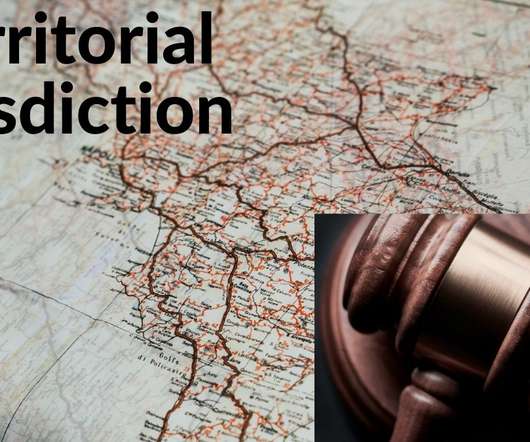A Critique On The Territorial Jurisdiction Of Courts In India
LexForti
JUNE 4, 2021
It would be imperative to take into cognizance the concept of jurisdiction which is a conglomeration of two terms, such as juris (meaning “law”) and diction (meaning “to speak”), which can be translated as presuming the appropriate forum that has the potential to “speak the law.”













Let's personalize your content